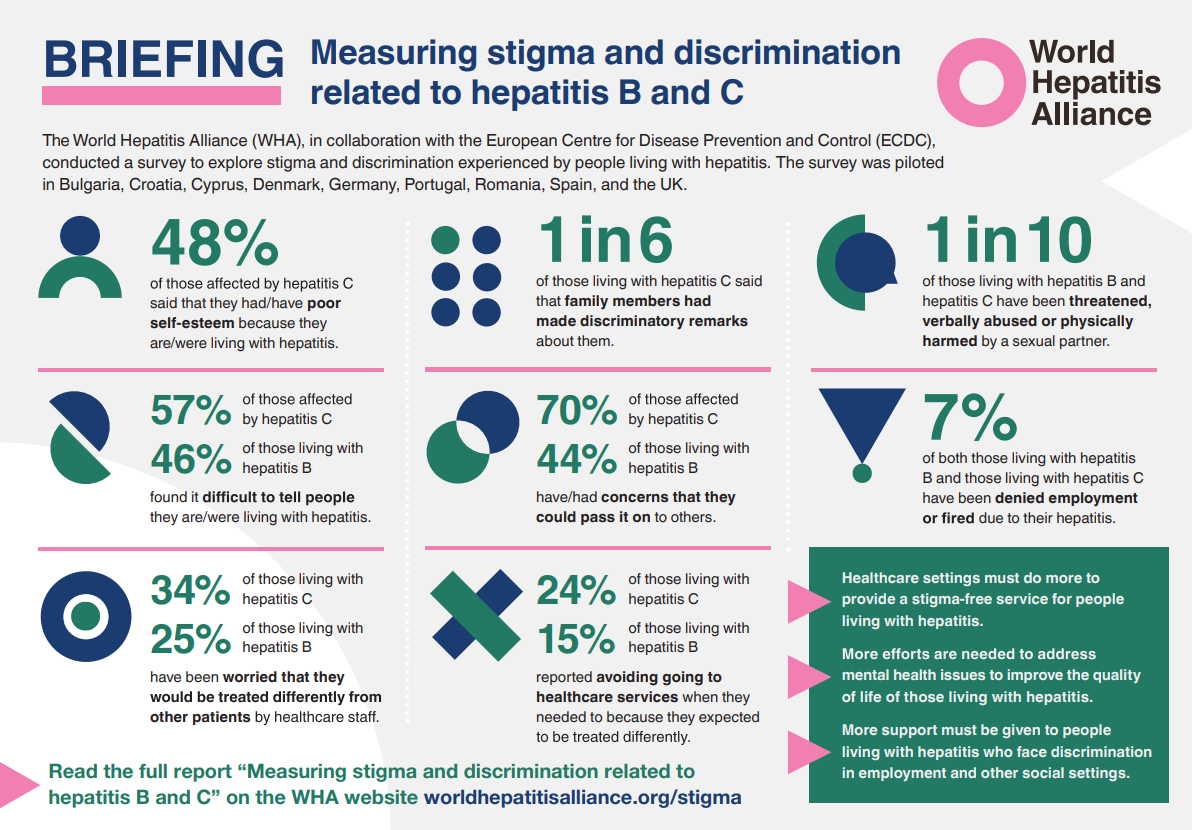Measuring stigma and discrimination related to hepatitis B and C
Stigma and discrimination continue to prevent people living with hepatitis B and C from accessing the care and support they need. A new survey—developed by World Hepatitis Alliance in partnership with the European Centre for Disease Prevention and Control (ECDC)—shines a light on the real-world experiences of people living with viral hepatitis across nine European countries.
The results reveal how misinformation, shame, and fear of judgement affect everything from healthcare access to mental health.
In early 2024 the survey was piloted in Bulgaria, Croatia, Cyprus, Denmark, Germany, Portugal, Spain, Romania and the UK. The data is startling.
57% of those affected by hepatitis C and 46% of those living with hepatitis B found it difficult to tell people they are/were living with hepatitis.
70% of those affected hepatitis C and 44% of people living with hepatitis B have/had concerns they could pass it on to others.
24% of those affected by hepatitis C and 15% of those living with hepatitis B reported avoiding going to healthcare services when they needed to because they expected to be treated differently.
Download infographicDownload full report
